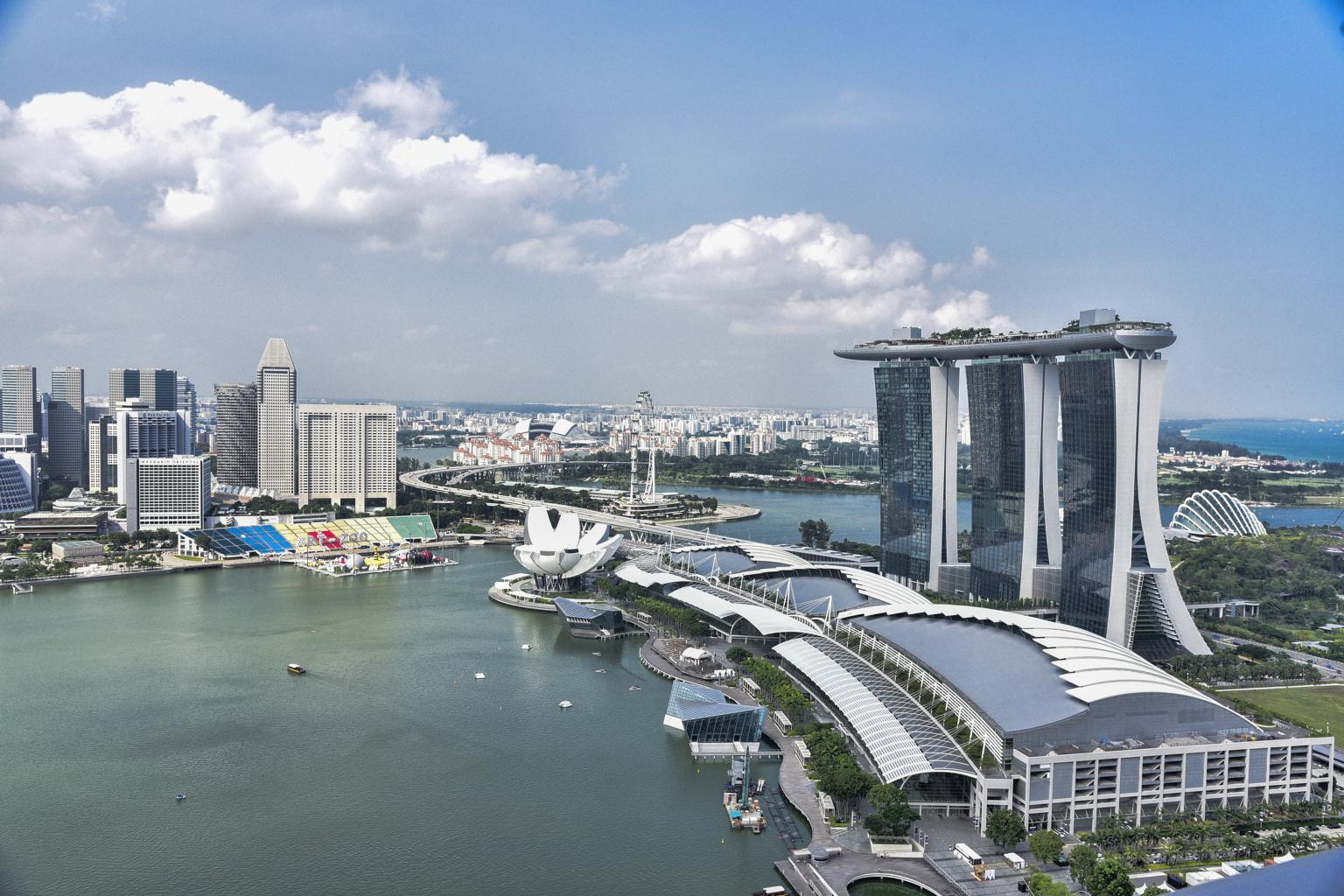Success of Singapore Economy 2030 plan rests on business and workforce transformation: Gan Kim Yong
Sign up now: Get ST's newsletters delivered to your inbox

The Government has developed various plans and engaged its trading partners to face the rising challenges.
PHOTO: ST FILE
Follow topic:
SINGAPORE - The Republic will strive to make the best out of opportunities presented by a volatile and fast-changing global economy, said Trade and Industry Minister Gan Kim Yong on Monday (April 25).
He said the Government has developed various plans, such as the Singapore Economy 2030 vision and the Industry Transformation Maps, and has engaged its trading partners through a network of bilateral and multilateral agreements to face the rising challenges.
But the success of these strategies and trade deals will depend on how aggressively Singapore businesses pursue the opportunities presented by them, Mr Gan said, speaking at the Ministry of Trade and Industry (MTI) Firefly Symposium at Suntec Hybrid Experience Centre, held in collaboration with the Singapore Tourism Board.
"We need to achieve deep industry and business transformation, and build a strong bench of Singapore enterprises that can create good careers for our people."
The minister said that some businesses have questioned the need for transformation at a time when costs are rising and workers with the right skills to support the companies' daily operations are in short supply.
"Actually, the only sustainable way to address these challenges is to relentlessly push on innovation and transformation," he said.
The minister agreed that the global environment is filled with uncertainties. In the near to medium term, businesses will face heightened inflation, constrained supply and volatile geopolitics.
The war in Ukraine has sent shockwaves throughout the global economy, further straining and disrupting supply chains, and driving up prices of energy, food and industrial commodities.
But businesses should not lose sight of longer-term trends and structural shifts that are reshaping the global economic landscape, he said.
"Against this backdrop of rising challenges, we continue to see many growth opportunities, and Singapore is well positioned to seize them."
He said local businesses should seek to benefit from new economic partnerships and trade pacts such as the Regional Comprehensive Economic Partnership and the Comprehensive and Progressive Agreement for Trans-Pacific Partnership, and various new free trade agreements and digital economy pacts.
He also highlighted opportunities in the United States-led Indo-Pacific Economic Framework, and the US-Singapore Partnership for Growth and Innovation, China's Comprehensive Strategic Partnership, South Korea's New Southern Policy Plus and Japan's Investing for the Future Initiative.
Singapore is also investing heavily to capture value from secular trends of digital technology and sustainability that should boost productivity and lessen dependence on a large workforce.
"Companies need to innovate, build deep capabilities and pivot their business models where needed, to respond to industry trends, open up new revenue streams and leapfrog the competition.
"Our companies will need to be nimble in pivoting their processes, workers and even their entire business models, to seize these opportunities," he said.
He said all of these initiatives must be paired closely with workforce transformation, which will require not only commitment and investment from companies, but also the willingness of workers to learn new knowledge and skills, and take on new responsibilities.
Singapore Business Federation (SBF) chairman Lim Ming Yan said SBF seeks to help bring the Singapore Economy 2030 vision to fruition, in partnership with the government, the union, businesses, and trade associations and chambers.
"We will do so through initiatives under our three strategic pillars, namely internationalisation; digitalisation and transformation; and jobs and skills," he said.
The Ministry of Manpower, Economic Development Board and Enterprise Singapore also gave presentations to highlight their efforts and initiatives in line with the 2030 vision.
Announced by Mr Gan last month, the 2030 economic plan aims to put Singapore industries, enterprises and workers on a firmer footing for long-term, sustainable growth over the next decade.
MTI targets to raise Singapore's export value from $805 billion in 2020 to at least $1 trillion by 2030. It also wants Singapore to capture more re-exports and transshipment flows, and expand trade with more economies with deeper connections in global supply chains.

